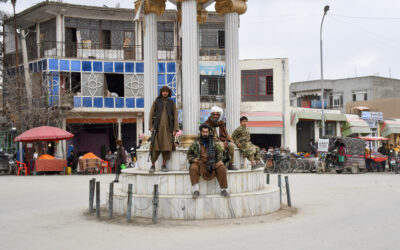This week Bahrain’s Special Investigations Unit (SIU)—one of the showcase pieces of reform the regime presents as evidence of progress on human rights—announced that it had received 17 complaints of human rights abuses during the month of April “including allegations of torture, ill-treatment and the use of excessive force by the Public Security forces.”
Such allegations are common, but the SIU’s record of investigating and bringing perpetrators to justice is poor, with little trust that people in custody aren’t being coerced into making confessions by security officers.
The Bahraini police’s record on getting people to confess is extraordinary. Last week 11 men in custody admitted to terrorist offenses. It’s not uncommon for dozens of people to confess to the same crime. Either the country has incredibly skilled interrogators who can extract confessions through conversation, or they’re using torture to force confessions.
As a key military ally of Bahrain, the U.S. response to Bahrain’s treatment of prisoners and allegations of torture has been dismal. While the U.S. embassy typically sends an observer to high profile trials, the embassy chooses not to speak out publicly about the unfairness of the court or comment on mistreatment of prisoners, even when the court proceedings are patently a sham and defendants credibly cite evidence of torture.
There’s some history here: in 2011, in response to widespread peaceful protests against the regime, Bahrain’s police arrested and abused hundreds of people. Four were tortured to death in custody.
The king ordered a commission of inquiry into what happened which detailed widespread mistreatment of those in custody. “A large number of detainees alleged that they were forced to sign confessions during their interrogations. This was particularly prevalent at the NSA [National Security Agency] and the CID [Criminal Investigation Directorate],” noted the report, whose forensic teams examined dozens of prisoners and detailed the torture inflicted on leading human rights activists and peaceful political opposition leaders. “In many cases, detainees were forced to sign documents that they did not have a chance to read. The detainees alleged that they were subjected to mistreatment if they refused to sign such documents. These confessions were later used as evidence against them in their criminal trials. Many of the detainees alleged that they were told that if they confessed to certain crimes they would avoid even worse treatment,” said the inquiry.
The Bahraini government claimed this week to have fully implemented the inquiry’s recommendations, including anti-torture measures such as filming police interrogations (“There should be audiovisual recording of all official interviews with detained persons” it said), and stripping the notorious NSA of its powers of arrest.
But reports from activists tell a different story: routine torture is back or maybe never really went away.
At the end of last month, Rihanna AlMousawi was released after three years in prison, convicted of terrorist-related offenses. She told me she had been forced into making a false confession. “I wasn’t allowed access to my lawyer and was forced to sign a statement without knowing what the contents were.”
She said she was stripped naked twice at the Riffa police station, including once in front of a surveillance camera in the ceiling. She says the security forces threatened to bring her son and her husband’s mother and rape Rihanna in front of them, that she was subjected to electric shocks and beatings, that her hearing and sight are still damaged from the torture.
Lawyers tell me that while in the CID headquarters there are cameras in the visiting rooms for when families and lawyers visit, there aren’t any in the interrogation rooms. Veteran human rights lawyer Mohammed al Tajer told me that although there are cameras in interrogation rooms at Manama police station, there are none present during the public prosecution where many accused confess. “We ask for film of the interrogations from places where there are cameras but it’s never produced,” he said.
“Everyone knows who the NSA people are and that they are still arresting people from their homes and interrogating them but officially, they do it in the name of the CID for PR purposes,” said Tajer. “The Minister of the Interior has announced that section 15 of Jau prison is under MOI control, and we know it’s the NSA who are interrogating new detainees. The NSA’s name doesn’t appear in the case files, it’s done under the CID’s name, but it’s the NSA who are a main player in these interrogations, with them often questioning a suspect for a few days first before handing them over to the MOI interrogators.”
Very occasionally, defendants tortured into making false admissions of guilt are later declared innocent by the courts, as happened with nine medics arrested in 2011, leaving the government in the awkward situation of having a pile of confessions signed by people it acknowledges didn’t commit any crime. Bahrain’s government has twice cancelled invitations for Juan Mendez, UN Special Rapporteur on Torture, to visit the country, and he has yet to be allowed in to investigate reports first hand.
Washington, still dealing with its own legacy of torture, needs to tell its Bahraini allies that forced confessions won’t create political stability, and when it observes trials in Bahrain that are unfair, it should say so publicly.
Next month will mark a year since the State Department announced it was lifting holds on selling certain weapons to Bahrain’s security forces, citing “meaningful progress on human rights reforms.” The State Department should use the anniversary to publicly explain why it thinks arming Bahrain’s security forces is helping to end the abuse of detainees by its ally.










